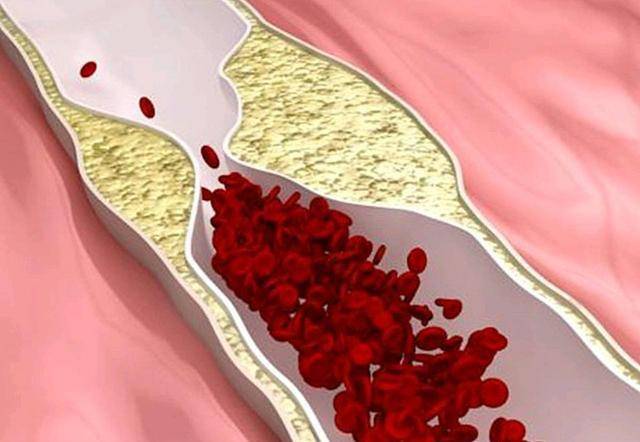Hyperlipidemia is a very common chronic disease, mostly referring to lipid abnormalities, characterized by elevated levels of cholesterol, triglycerides, and low-density lipoprotein cholesterol in the blood, and decreased levels of high-density lipoprotein cholesterol (HDL-C) leading to a metabolic disorder.
The normal values for cholesterol are <5.2 mmol/L, triglycerides <1.7 mmol/L. If these standards are exceeded during tests, with total cholesterol and triglyceride levels higher than normal, it would be diagnosed as hyperlipidemia.
According to relevant data, the incidence of hyperlipidemia among adults over 20 years old in China has reached 20.6%, with about a quarter of the population having abnormal lipid levels.
1. High Cholesterol and Saturated Fatty Acids Intake
Some individuals in daily life enjoy consuming fatty meats and animal organs, while others prefer using lard for cooking. However, a prolonged high-cholesterol diet can easily lead to elevated blood lipids.
2. Unhealthy Lifestyle
An unhealthy lifestyle can also contribute to high blood lipids. Factors such as smoking, drinking alcohol, prolonged sitting, anxiety, and stress can easily cause hormonal imbalances, leading to obesity and subsequently increasing the risk of hyperlipidemia.
3. Genetic Factors
Hyperlipidemia can also follow certain genetic patterns. If there are multiple family members with elevated blood lipids, the offspring may also experience high blood lipids due to gene mutations affecting lipid metabolism. Precautionary measures should be taken in such families.
Academician Chen Keji of the Chinese Academy of Sciences has been engaged in clinical research in internal medicine for a long time, specializing in cardiovascular diseases and geriatric diseases. With over 50 years of experience in vascular research, he holds unique insights into hyperlipidemia.
In 1963, at the suggestion of Chen Keji, a study was conducted in the cardiovascular research lab comparing the characteristics of hypertension, arteriosclerotic heart disease, blood lipid levels, and traditional Chinese medicine syndromes in vegetarians aged 63 and above with those of the same age group following a strict vegetarian diet for 14-72 years.
The final results revealed that a long-term strict vegetarian diet with imbalanced nutrition can disrupt endogenous lipid metabolism, glycogen metabolism, and lower immunity.
Indiscriminate vegetarianism not only fails to control one’s condition but also increases the risk of inflammatory diseases, negatively impacting personal health and leading to malnutrition. For many hyperlipidemia patients, meat consumption is strongly discouraged as it may raise cholesterol levels, burden the blood vessels, exacerbate hyperlipidemia, and even promote the progression of atherosclerosis.
As mentioned above, solely relying on a vegetarian diet is not advisable. Therefore, individuals should not blindly follow a vegetarian diet, as certain meats like fish, chicken, and shrimp can aid in reducing blood lipids.
1. Chinese Toon (Xiang Chun)
Chinese Toon is a green vegetable with high nutritional value, containing calcium, phosphorus, potassium, and aiding in spleen health, digestion, and digestion. However, for patients with cardiovascular diseases, Chinese Toon is considered a heaty food that may elevate blood pressure or blood lipids. Hence, it’s advised to avoid Chinese Toon.
2. Pumpkin
Although pumpkin is highly beneficial for health, it has a high sugar content. Regular consumption of pumpkin can lead to increased glucose levels in the blood vessels, resulting in fat accumulation and elevated blood lipids. Individuals with hyperlipidemia should limit pumpkin intake.
3. Fennel
Fennel has a high sodium content, with 100g containing 100mg of sodium, making it a high-sodium vegetable. Excessive sodium intake in hyperlipidemia patients can impair lipid metabolism, disrupt blood circulation, elevate blood density, and worsen the condition.
4. Chili Pepper
Chili pepper is a vegetable commonly used for seasoning or as a side dish. It stimulates gastric juice and saliva secretion, aiding in digestion and absorption, and contains high levels of vitamins. However, hyperlipidemia patients should avoid chili peppers due to their spiciness, which can cause gastrointestinal discomfort, blood vessel constriction, increased blood pressure, and instability.


